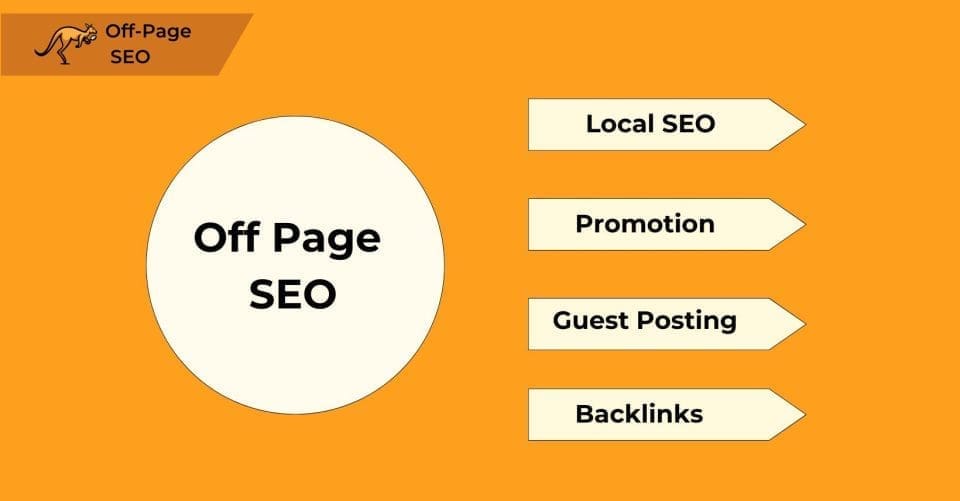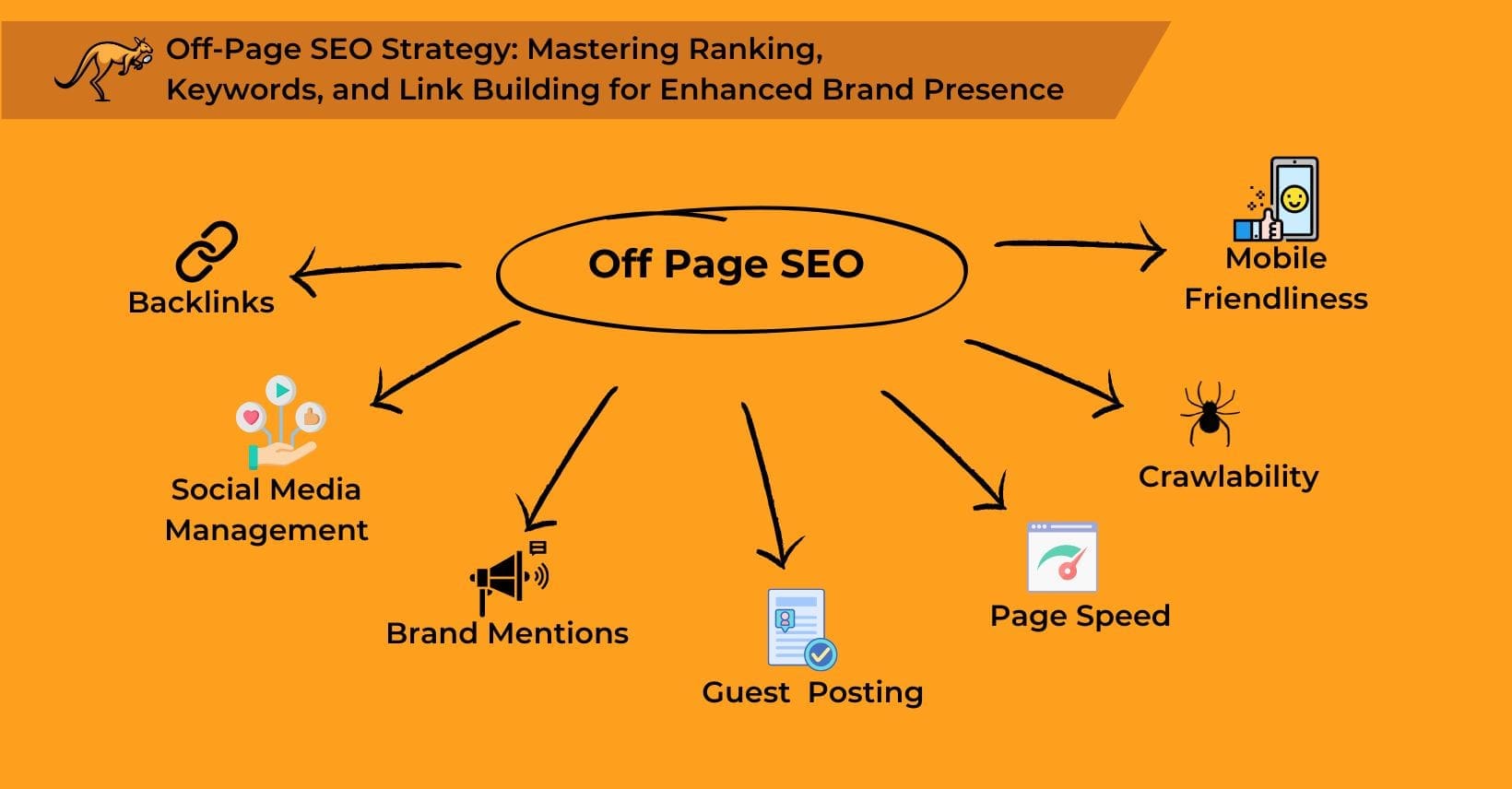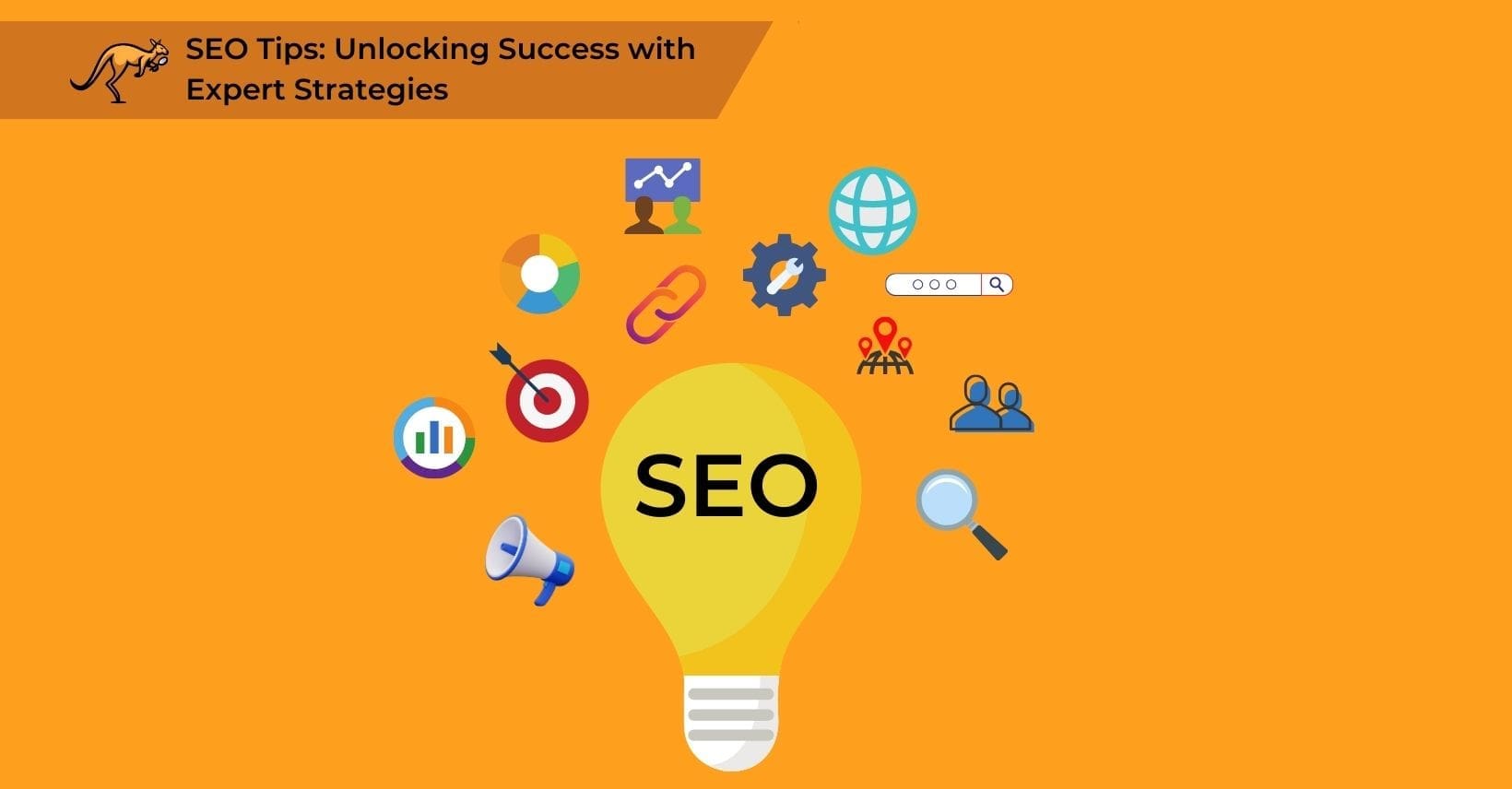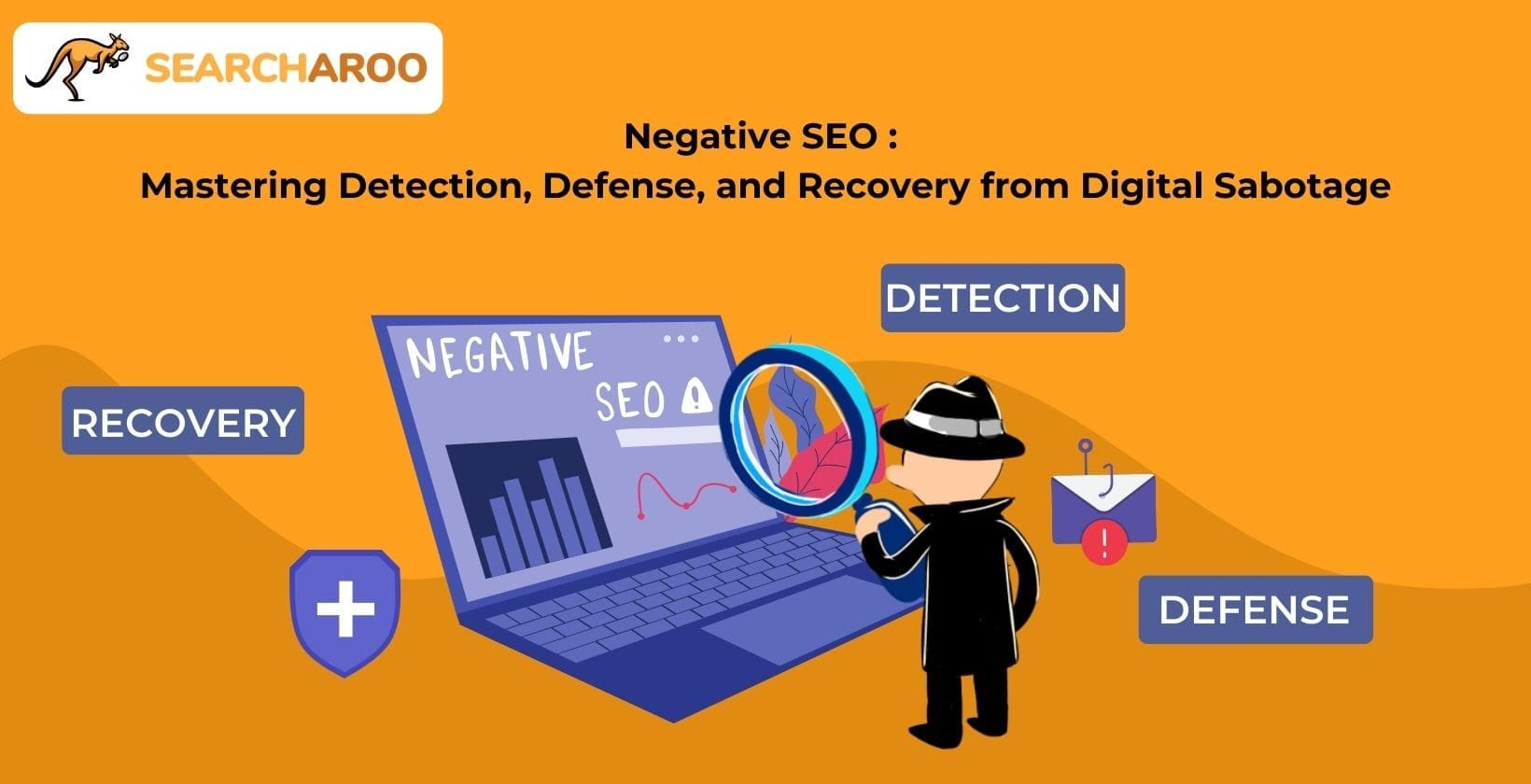Off-page SEO strategies and techniques are an incredibly valuable part of SEO and make up roughly half of the SEO process overall.
While on-page SEO can be just as effective, off-page SEO can increase a site’s search engine rankings dramatically if handled correctly and can contain a range of different tactics.
However, like any SEO effort, off-page SEO requires a combination of solid planning and effective implementation.
Whether you are new to off-page SEO or are just trying to nail down a strategy, it is important to understand how effective off-page SEO techniques are chosen.
Off-page SEO can cover a lot of different techniques, all working to the same goal in very different ways.
Effective off-page SEO requires careful application of various tools to achieve desired outcomes over time. This approach paves the way for a deeper dive into Understanding Off-Page SEO.
Understanding Off-Page SEO

While some people reading this might already know what off-page SEO is, it is important to be absolutely sure that you understand the basics before you start diving into the SEO techniques behind it.
Off-site SEO can really matter in SEO as a whole, but doing it incorrectly can damage your rankings more than it benefits them.
In simple terms, off-page SEO is about improving your site’s online presence by doing things on other websites.
This could be building high-quality links with major news sites or gathering up hundreds of small links from personal blogs.
The only real goal of SEO, overall, is to help your website rank higher on search engines.
Before we discuss any defined strategies, you need to understand how SEO works and how it can be approached, especially if you do not already have experience with it.
Even individuals with prior SEO knowledge may need a refresher on its fundamental principles, particularly if they have yet to stay current with Google’s frequent updates. This necessity for continual learning seamlessly transitions into our next discussion on what SEO is.
What is SEO?
As a simple refresher, SEO is all about optimizing your site for search engines.
SEO focuses on improving your website to appeal more to search engines, which means that you rank higher in relevant search results.
This increases your reach because you are shown to more users doing a casual search for a similar topic.
Search Engine Optimization focuses on pushing your site higher in search engine results that are relevant to your business.
For example, a furniture company wants to rank higher for the types of furniture products it sells, which means that it is more likely to appear when a user searches for those products.
What is Ranking?
Ranking is your position in search engine results: the higher you rank for an exact term, the more likely you are to appear higher in search results.
Since most users will only stick to the first page of search engines (and even more will only use the top few results), appearing higher directly translates to more traffic and more business success.
Rankings can be boosted through on-page SEO tweaks, technical SEO adjustments, or off-page SEO that relies on building links from other sites to increase things like your domain authority.
Domain authority is effectively a score of your site’s general SEO quality and the amount of trust that can be put into it, which usually leads to it ranking higher on search platforms.
Of course, there are more ranking factors than just this, such as relevancy and keyword usage.
Most off-page SEO work requires careful planning to get the best results across all important SEO elements.
This means that using the right tactics for each situation can be really important.
Overall, SEO revolves around ranking higher for relevant topics and getting more attention from relevant audiences.
Attracting more users is not helpful—they need to be potential customers who are interested in sales and services that your business can profit from or who have some other value to your business (such as signing up for newsletters).
What are Keywords?
SEO revolves around keywords, the terms that users are searching for.
A good combination of keywords and ranking boosts ensures that your business appears for the right people at the right time and is more likely to appear higher in search results than the competition.
Good keyword usage impacts how relevant something is.
You ideally want both sites and the anchor text of the link (and the link’s surrounding context) to be relevant since this increases your rankings for related topics.
Irrelevant links can still technically boost SEO, but they will make your site rank for the wrong reasons.
You may get penalized if you are clearly farming unrelated links that have nothing to do with your business.
Keywords are focused on the terms that users are actually searching for, so it’s very important to choose the right ones for external links.
Effective SEO largely depends on identifying high-impact keywords and securing their presence on influential sites to enhance rankings. This strategy seamlessly transitions into our discussion of the Common off-page SEO Strategy.
Common OffPage SEO Strategy
\Building a good SEO strategy requires very careful consideration of your goals, your SEO niche, and the kind of attention and relevant topics that would help your brand rank higher overall.
While there is much to say about off-page SEO as a whole, let’s first break down some of the most common tactics.
These are common because they work and usually form the basis of a site’s SEO in the long term: they are effective enough to be a solid anchor point for every other piece of SEO work.
Whether you have encountered these techniques before or not, understanding them in more detail can help if you are trying to build an off-page SEO plan of your own.
Knowing when and how they benefit your site can help you avoid double-dipping and wasting SEO effort on something that was already technically done.
Remember that SEO is created to each site specifically.
While these strategies might be effective, they still need to be implemented in a way that makes sense for your site—and how you do this depends entirely on your business goals and your long-term SEO expectations.
Link Building
Link building is the fundamental core of most off-page SEO techniques, as most of them rely on links for their success.
Building quality backlinks from relevant and well-respected websites is the easiest way to push your site higher in the rankings, increase its overall domain authority, and open up useful connections.
The best links come from high-authority sites that are relevant to your target audience and are placed in content (such as a blog post) that is also relevant to your target audience and the target web page.
Properly building backlinks requires a careful approach: you want links that are relevant, high-quality, not set to nofollow, are not going to be purged or wiped quickly, and are earned through white-hat methods.
While this can leave you with a small pool of ideal links to draw from, building links in general still has benefits.
A proper backlink profile (the collective pool of all links pointing to your site) makes a major difference.
Whether you use self-created links on social media platforms or arrange for a guest post on a small blog website, a decent backlink can still contribute to your SEO.
The main concern with link building is choosing irrelevant or poor-quality backlinks that can negatively affect the rest of the site.
If you are not careful, bad off-page SEO strategies can actively harm your rankings or promote your website to the wrong people, so it is important to build the right links.
Content Writing

While writing content for your own site is technically already used for on-page SEO techniques, it can also be a good off-page SEO tactic if you are using the content on other websites.
Whether you are paying to put a custom post on a blog or writing content for other platforms that you can link back to your main site, creating amazing content allows you to have full control over the link placements and context.
This makes it much easier to target the keywords you want without having to endure edits from a blog owner.
Of course, this also relies on you finding sites that will allow you to place content like this.
This can take a while, but it is still worth having some content ready to use in case the opportunity arises.
Broken Link Building
Building links via broken links is a viable option and one that many site owners completely miss out on at first.
Broken links are any links that were once used to point to content that no longer exists, such as an article on a deleted blog.
By approaching sites that have broken links and offering to replace them with your own content, you can effectively hijack the SEO benefits of a site that is no longer able to receive them anyway.
This gives you easy access to an established link buried in some high-quality content.
Of course, broken backlinks still need to be good and relevant to get the proper benefits.
This means that you need to choose the right broken link opportunities for your business rather than simply taking whatever broken links you find, regardless of whether they are relevant or not.
Link Reclaiming
Another option is to reclaim links that your business has already had and lost.
This involves approaching website owners and re-requesting a new link to replace the old one, whether it was lost due to an error on their part or because your site’s URLs have changed.
This can be a very useful option if you are targeting old content that still has relevance to your business.
This also helps if you want to fix issues with URL changes that have damaged your rankings due to a loss of core links.
For example, if you have an old site that used a different address, you can re-claim these links and then redirect traffic to your newer content or replace them with entirely new links aimed at your updated site.
Guest Blogging
Guest blogging allows you to create guest posts on a blog site or another website arranged between you and the site owner.
This effectively gives you a way to custom-make content to suit your SEO needs, as long as it falls within the site manager’s limits of what guest posts can include.
Planting a custom blog post and link on high-authority sites allows you to benefit dramatically.
The site’s audience is already attracted to the content, meaning you can effectively leverage them to visit your site through natural searches.
This also helps improve the domain authority of your site, as the link can also be seen as a vote of confidence from the site owner and the site’s audience, giving you a bigger push to the top.
As long as the link is not tagged as nofollow, guest posts on your website should benefit your website greatly.
Of course, not all sites allow guest posts, or they may only allow them if they can make major changes to them.
This could limit your control over what is actually said, so it is important to consider the specifics of each arrangement and how you can maximize the SEO potential of each link that you manage to secure.
As an off-page SEO strategy, guest blogging allows for very precise link placements for maximum quality but usually still needs a high-quantity link profile behind it to ensure that you are ranking as high as possible.
Social Media Marketing
Social media can benefit your SEO since social media signals sometimes benefit your site’s rankings overall.
In some cases, mentions of your brand can count as links in themselves, and having a social media platform gives you another way to link back to your site while also directing traffic to detailed pages.
Being responsive and accessible to your audience on social media can actively boost your reputation.
Since brand mentions sometimes count as links in Google’s algorithm, having more community engagement can directly boost your SEO without requiring many natural links.
While it is not directly related to SEO, social media marketing also provides an easy way to attract a wider audience.
This means more brand mentions overall, which can bolster your Google rankings even if you are not directly using social media platforms for SEO.
Forum Posting
Joining online communities related to your business and engaging with them as another community member can make a huge difference.
While approaching them with a slew of ads is likely to just get you ignored, actually interacting with the community can enable you to place authentic links while also boosting your reputation.
This not only leads to more brand mentions but also helps cement you as an authority in your particular niche, especially if there are not many other companies within that industry that engage with users at that level.
Posting on forums can allow you to place links on a site that is very relevant to your industry and control the exact keywords that you use, with the added benefit of getting natural traffic through those links, too.
Again, the only downside is the forum’s rules, which might limit natural links in certain ways.
Blog Commenting
While blog commenting is often seen as a black hat measure, this is only because it is often used to spam links to unrelated sites.
Leaving constructive blog posts or feedback on relevant sites can really help, especially if you do not build the entire comment around your link or put it in a comment signature.
While this can be risky, it is also a good off-page SEO tactic for businesses that are already heavily connected to blogs.
Although these may not be the highest-quality links, they can still benefit your overall SEO strategy if you approach them correctly.
In some cases, they might get used as backup links in case the original guest post is taken down.
As long as the site owner has not nofollowed their comment links, you can still benefit from them – and even a nofollowed comment could still acquire natural traffic.
Remember that using comments for SEO is less effective than using other strategies. Comments serve as supplementary tools, particularly within distinct online communities, rather than as a primary SEO method. This consideration brings us to the importance of a broader approach, leading to our next discussion on Building an off-page SEO Strategy.
Building an OffPage SEO Strategy
Everything above was a fairly barebones look at off-page SEO. This is because off-page SEO, like any kind of SEO, can get incredibly complex once you start combining different techniques to target exact goals.
One of the biggest issues you can run into with SEO is not having a decent strategy.
Identifying a single keyword might not be hard, but trying to identify dozens while also keeping track of which ones you are targeting can get confusing, especially if you are not following any kind of structure.
SEO relies on opportunities, but you need to plan around those opportunities rather than just taking them.
A well-planned guest post on a blog can serve as a powerful tool. When executed with strategy, it shares your insights and enhances your visibility. This effectiveness seamlessly transitions into our discussion on building off-page SEO strategies.
Identify Your Goals
Off-page SEO is obviously meant to improve site-wide SEO and search ranking factors, but this can actually mean a lot of different things.
The goals that you set matter. One business might want to rank as high as possible for an exact keyword, while another may have a double-digit pool of keywords that they want to rank for, depending on their importance.
Neither of these approaches is wrong, but they would completely change the way that you tackle SEO and the overall goals that you are trying to reach by using it.
Make sure that you have at least a decent idea of your overall goals and that you know what kind of results you want to get from SEO.
Your off-page SEO tactics should all be in service of a precise goal, not used at random.
Remember that goals can also change depending on your situation.
You do not need to commit to a single long-term goal: you can always try to prioritize different aspects of your SEO based on which would be the most successful or which would be suffering the most.
However you settle on an immediate goal, make sure that you understand where to focus and what you want to achieve.
This can help direct your SEO efforts to opportunities that will actually benefit your site in the long term.
Understand Your Niche
SEO relies on you choosing relevancy options and pushing for whatever would boost your site rankings the most, and that means relying on whatever niches your business covers.
While there are not any defined niches within SEO itself, you can usually get an idea based on the products and services you offer and the kind of customers that will want them.
For example, a furniture company is obviously focused on furniture as a whole, so you might get the best link opportunities from sites that are also related to furniture or pages that discuss furniture similar to your own products.
This example might be obvious, but it can get more complex with something such as vehicle repair, DIY work, or cooking.
These can cover many individual sub-types of content, and not all of them might be relevant to your brand, so it is important to break down what would actually match your business needs.
While you do not necessarily have to be part of the industry from which you are getting a link, it still needs to be relevant.
A car hire company could benefit from links from a car review site but not from a site that reviews cooking products.
Use some common sense and explore the kinds of links that you already have in your link profile.
This can help you figure out what kind of niches are most likely to matter to your business, letting you target ones that are actually relevant to your audience.
Understand Your Brand’s Presence
It is also important to break down your brand as a whole to understand what opportunities you might have.
A special selling point or a new product launch can be the perfect excuse to capture more links.
Even without these excuses, you want to understand how and when users are looking at your brand.
Using SEO reporting and marketing tools can be a great way to see how well you are performing, what your SEO strengths are, and which weaknesses are hitting your business the hardest.
Understanding your current online presence is crucial before attempting proper SEO, so gathering details about your current SEO success is also helpful.
This can also include your general reputation and how others see you online.
It might be a good idea to look around and see how well your brand is received, especially if you want to boost SEO to improve your overall reputation and attract a wider audience.
Do not hesitate to include social media in this, too, since these are very user-heavy.
Social media platforms can be just as important as links, and poor social media performance usually means that you have areas of improvement for SEO on social platforms, too.
Decide How You Want to Improve
Building your goals is as simple as deciding which areas of improvement you want to target first – in this case, this can mean deciding what you want to see improve first with off-page SEO.
Sometimes, this is obvious, such as promoting high-performing products or trying to help struggling pages appear higher when users are searching for something similar to them.
In other cases, some websites are struggling to stay above the second page overall, which can be a serious SEO issue that needs addressing if they want to see success.
It does not even have to be tied to marketing directly – you may just want to increase your site traffic or simply improve your online reputation so that you can snowball your SEO in preparation for future big releases.
The important thing is to understand what you want to improve in SEO and use the above to determine where to start.
SEO strategies differ widely, adapting to exact business requirements; there is no one-size-fits-all approach. Such customization is essential to maximize search engine rankings and online visibility. Next, we’ll explore how to choose the right off-page SEO tactics, an integral part of creating your SEO strategy.
Choose The Right Off-Page SEO Tactics
There are dozens of different ways to approach SEO as a whole, and no objectively correct answers. This means that choosing the right tactics can really help.
While off-site SEO focuses mostly on building backlinks and reputation, there are a lot of ways to do this.
Your choice of off-page SEO tactics can completely change how you approach the process itself and might even adjust the end goals that you need to aim for.
For example, guest posting can allow you to quickly build links on relevant sites, which naturally boosts site SEO.
However, if you want to maximize referral traffic, your guest posting may need to be targeted at other sites that are more conducive to traffic than rankings.
This is important because your goals should be to align with your audience, where the focus is on what they expect and what they value.
You want your site’s off-page SEO to focus on things that connect your audience to your content, which usually means search terms that they are likely to use.
Keep Keyword Research At The Core Of Your SEO
There is no doubt that keyword research is an essential tool for any SEO strategy, but paying attention to it can really help you find high-quality links.
Keyword research can show you which terms are driving the most relevant traffic to your site, whether you are targeting them or not. This opens up new content opportunities and potential link-building options.
The most important aspect of keyword research is to understand that the term “keyword” is not always synonymous with “search term.” While this matters a lot, it can also impact relevancy overall, even if no searching is involved.
For example, suppose you create a guest posting article on a site relevant to your own but use an unrelated keyword as anchor text. In that case, this can influence your SEO in a negative way, even if nobody is actually searching for that term.
Finding keywords relevant to your site is a key part of both off-page and on-page SEO techniques. Knowing what your audience is searching to find you can give you an idea of what to target on Google and other search engines.
In simple terms, always do keyword research. Knowing more about your audience and their searching habits is vital to getting the results you need without having to use trial and error for every single SEO tactic.
Don’t Get Tunnel Vision with On-Page SEO
Your off-page SEO strategy should ideally be part of a larger SEO plan that combines off-page SEO, on-page SEO, and technical SEO all at once.
SEO is a very broad field, so it is easy to focus too much on one task and not enough on another.
For example, while you will obviously find off-page SEO important, try to support it with on-page work as well.
For example, a good off-page SEO strategy could earn you a huge amount of links that increase referral traffic and rankings dramatically.
However, using on-page SEO to improve the chosen landing pages can lead to even more authority (or link juice) from these external links.
This also covers things like influencer marketing, social media management, and even the creation of YouTube videos.
Combining conventional off-page SEO with other marketing tactics and techniques can strengthen them even further.
You do not need to balance these things equally, so it is entirely valid to have a plan that focuses on off-page SEO with only a tiny amount of on-page SEO.
However, it is important not to limit yourself to just one type of SEO if you need something more complex.
Understand Your Options
The off-page SEO strategy options mentioned above in this article are just a few of the many, many ways that you might end up tackling off-site SEO.
It is important to look into your various options and the off-page SEO factors that you want to target before you start building a strategy of your own.
Off-page SEO involves many different things, so there is no single perfect approach.
Between seeking out different inbound links and trying to build a stronger search reputation, the options you choose should depend on what you want to achieve.
It can also help to research what direct Google ranking factor examples you might need to consider and get an understanding of how search engine spiders work.
Understanding the situation thoroughly before planning simplifies achieving desired outcomes. This knowledge forms a solid foundation for our subsequent discussion on Important Tips for Off-Page SEO.
Important Tips for Off-Page SEO
Since off-page SEO refers to so many different concepts, it can be hard to determine which exact tips might help.
Thankfully, it is not hard to understand how the process works, at least not once you begin properly planning your strategies.
Here are some important off-site SEO tips that do not necessarily apply to every situation but are still incredibly useful for maximizing the benefits they will bring you.
Avoid Black Hat Methods
Be careful, even if a black hat option (an SEO technique that goes against search engine guidelines) would give you high-authority links.
Search engines do not like these and will usually penalize any sites that use them, which massively hurts your SEO tactics.
Extreme penalties might even lead to your site being deindexed from search engines entirely, meaning that it will not show up on search results at all.
Include Local SEO
Local SEO can benefit from off-page options just as much as on-page.
It is easy to overlook local SEO, but good local SEO efforts can get you noticed by customers in your local area, which is especially important for physical stores.
Local spaces also have less competition since you are not up against every other business in the industry, meaning that you can dominate local search and social media results.
Mix On-Page and Off-Page SEO
As mentioned before, on-page tweaks can often help with off-page SEO tactic success.
Be sure to tweak the page names and metadata of landing pages as needed, especially if you want to guarantee that external websites are as relevant as possible.
This is especially important for securing organic traffic since search engines do not respond to the same things as users.
For example, guest posting will get your site ranking higher in search results, but users will not visit if your site is not actually useful to them and do not care about guest posting on other platforms.
Don’t Focus Purely on Rankings
While rankings are important, SEO can also make a big difference when dealing with other sites.
A mixture of good on-page and off-site SEO signals a higher level of trust, mostly through your domain authority (or trust flow, if you are using the Majestic citation and trust flow systems).
While this might not increase referral traffic, it can be important for influencer marketing or earning editorial links.
The higher quality your site is, the more likely others are to trust it.
This can make good SEO a great way to improve your potential options and open up new avenues of SEO, all while boosting your rankings anyway.
Understand The Search Engines
Different search engines use different algorithms. Even if you only care about Google, you still want to know how it works.
Good link-building means understanding how these platforms handle ranking.
Spend some time looking into the systems behind link building and organic traffic, especially if you do not have much SEO experience yet.
Off-page SEO includes many different options, but all revolve around boosting your rankings on search engines like Google.
Aim for Brand Mentions
Google sometimes treats brand mentions as SEO links, and that means that you can use them alongside link building.
In situations where link building is not possible, brand mentions can be a cleaner way to get good off-page SEO.
This is especially true for local off-page SEO, where links may be harder to obtain due to the small number of local sites.
Use Other Marketing Tools
Whether you’re using influencer marketing or buying ads, it’s worth combining SEO with other marketing techniques to get the best of both worlds.
For example, link building on its own is very effective at getting the attention of search engines.
However, link-building and paid search ads can allow you to take over even more of the top spots on any search results page.
SEO is not the only tool in your arsenal, so focusing on it entirely can be a risk. You ideally want a balance of different marketing options to secure as many customers as possible.
Understand Important Google Ranking Factors
The SEO community as a whole understands the basics of how Google works and how links impact rankings.
There are many different factors that influence how you rank and how much link juice each link passes on within SEO. Some of these include:
Website quality, the overall quality of the site.
Core web vitals.
Content quality, meaning the quality of the website’s overall content.
Site architecture, how well designed the site is.
Domain authority.
Page speed, the loading time.
Image optimization, meaning image file sizes and loading times.
URL structure, the structure of the URLs, and the site’s navigation options.
Backlinks quality, meaning the number of high-quality links you have.
Mobile suitability, meaning how well the site works on mobile devices.
Link building revolves around similar factors, such as:
Content relevancy and quality.
Overall relevancy.
Keyword choices and relevancy.
Keyword placement is how well the keyword is placed.
Context, whether or not the keyword has a relevant context.
Anchor text and its relevancy.
Site trust and how reputable it is.
White hat tactics are used to gain it, rather than black hat ones.
In simple terms, a better off-page SEO result means pushing for quality as often as possible.
Since link building thrives on higher quality anyway, there is no reason not to pursue higher quality if you can.
Know Your Audience
It helps to understand what your audience is like.
For example, keyword research can reveal what your audience usually searches for when finding your business.
This can matter even for guest posting, as it can help you choose sites that relate to your audience’s interests.
Knowing more about your target audience can be very helpful if you want to send off-page SEO signals that are relevant to them.
The more you can match their preferred search terms and searching habits, the easier it becomes to target relevant websites and keywords correctly.
Just remember that your audience is not a single unified mass. Different people want different things.
Try to break down your audience into demographics, if you can, to get a better idea of who searches for what.
This can help you market the right products to the right people through SEO without changing much about your approach.
Use Common Sense
SEO is an incredibly broad field that can involve any number of external and internal links, optimization tweaks, and site redesigns.
From guest posting to creating social media profiles, always use common sense when deciding how to approach your SEO.
While taking some risks can be rewarding, do not rush into a decision that does not make sense or take a gamble on something that will not pay off.
SEO might not cost as much as paid marketing, but it is still part of your marketing. Too many mistakes can damage your business’ rankings quite dramatically.
You should take things slowly, approach the issue carefully, and ensure that you understand what you are planning to do.
Keep in mind that SEO is not a consistent field, either. Certain elements and algorithms may change as time passes and may be different across different search platforms.
Make Changes
SEO is a very flexible field that allows for a lot of quick adjustments. If something goes wrong, simply tweak it.
While you ideally never want to have your SEO process go wrong, it will always happen at least once.
The important thing is to respond to it effectively and resolve whatever issues you encounter, even if they are minor, like accidentally receiving links from a spam site.
Site crawls and SEO updates are usually done in waves, so you always have time to make adjustments before anything serious goes wrong.
If you plan ahead properly, then you can usually avoid any major problems by reacting to them as soon as they appear.
Always have a contingency plan for seizing new marketing or SEO opportunities, as they can vanish quickly. This precaution underscores the importance of choosing a reliable partner for off-page SEO strategies. Next, we’ll discuss what makes Searcharoo the ideal partner for off-page SEO strategies.
What Makes Searcharoo the Ideal Partner for Off-Page SEO Strategies?
Searcharoo is an ideal partner for off-page SEO strategies; we can provide strong backlink creation, content distribution, and social media integration support. Effective off-page SEO hinges on securing high-quality backlinks from reputable sources, which can greatly influence search engine rankings. We also offer specialized link building packages designed to meet various needs and budgets.
Also, our platforms that enhance the reach and visibility of content across various channels are important for driving traffic and building brand awareness. Integrating social media can further amplify this effect by engaging a broader audience and encouraging more interactions with the brand’s content.
Also, we offer tools for monitoring brand mentions, enhancing local SEO, and facilitating partnerships. These tools can provide comprehensive support for off-page SEO efforts. Monitoring tools can help capitalize on brand mentions across the web, turning them into potential link-building opportunities.
At the same time, local SEO enhancements can improve visibility in local search results. Our partnerships with influencers and other brands can also lead to collaborative content efforts and shared audiences, which are beneficial for SEO. Also, our platforms that provide detailed analytics and expert SEO guidance are invaluable for continuously refining and optimizing SEO strategies.
Next Steps in Elevating Your SEO Strategy
If you are interested in building a good off-page strategy, the best option is to examine your SEO options.
Different businesses have different SEO goals, so try to decide what yours should be long-term.
It might also help to have multiple short-term goals to rely on as stepping stones.
Whatever you settle for, remember that SEO is a very varied and unpredictable process.
There are no guaranteed winning solutions that work for every business, but using the right strategies can still make a huge difference.
Slow down and make sure that you approach the issue carefully, one step at a time.
If all else fails, you can always hire third-party SEO experts to handle the bulk of the work.
No matter what you do, your business’s SEO goals are going to be special. The way that you attempt to complete them will also be just as special, so build a strategy that works best for you.





